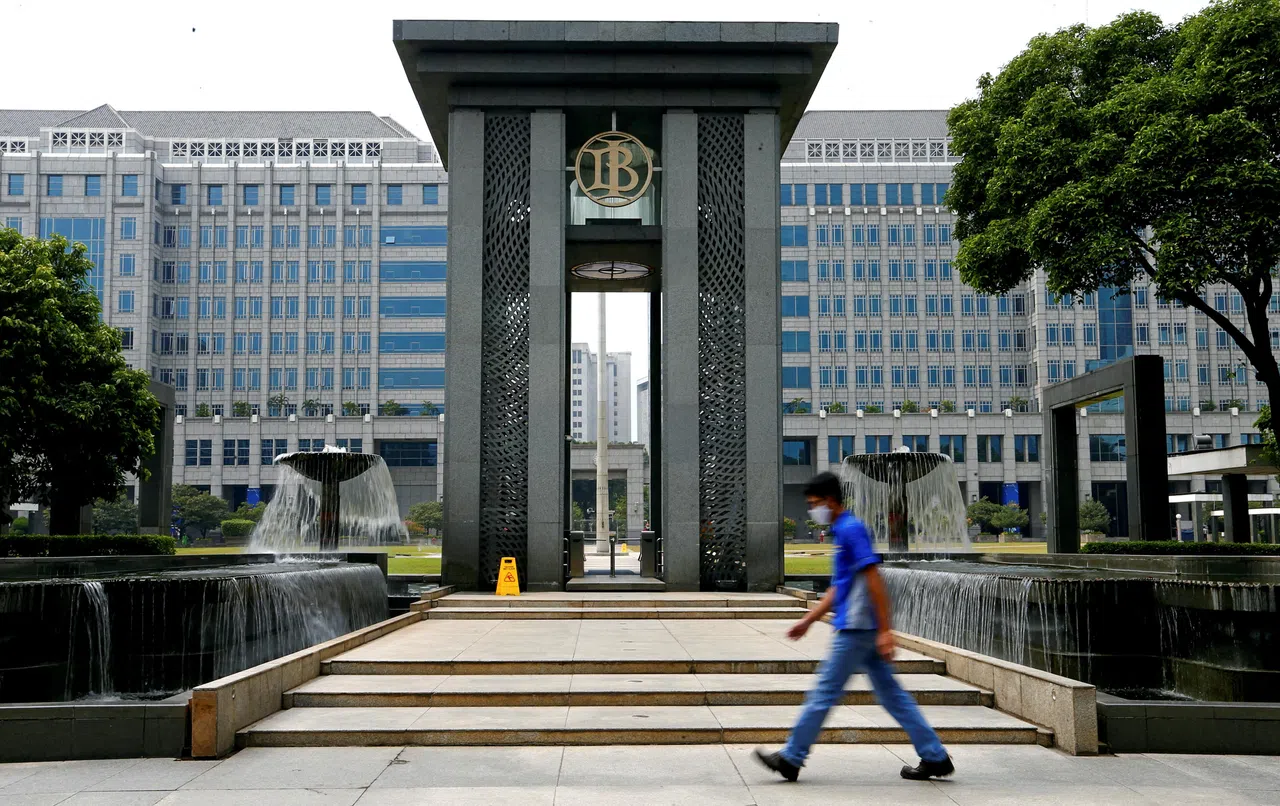BANK of Korea (BOK) governor Rhee Chang-yong signalled more policy easing to come this year as the central bank cut its benchmark interest rate to support an economy jolted by political turmoil and threatened by Donald Trump’s tariff plans.
In a press conference on Tuesday (Feb 25) after the board unanimously decided on a quarter-percentage point cut to 2.75 per cent, Rhee said market expectations of two to three cuts this year were in line with views at the BOK, his first indication of the long-term outlook for the latest easing cycle.
Rhee’s comments followed another downgrade in the bank’s economic forecast to 1.5 per cent growth for this year. In November, the BOK expected gross domestic product to grow 1.9 per cent in 2025, a view it then lowered to a 1.6 to 1.7 per cent range in January.
Rhee cited Trump’s protectionist policies as a factor behind worsening forecasts for the trade-reliant economy. The latest projection compares with a 2 per cent expansion last year and average annual growth of 2.5 per cent for the past decade.
“The outline of Trump’s tariff policies has now largely taken shape, and that prompted the downgrade from January,” Rhee said. Private spending and construction activity are also souring along with consumer confidence, contributing to the gloomier forecast, he said.
Tuesday’s move was forecast by all 22 economists surveyed by Bloomberg, and marked the third reduction to rates in the current easing cycle after the BOK pivoted on policy in October. In cutting rates, authorities are attempting to spur consumption hurt by the political chaos that engulfed South Korea after President Yoon Suk-yeol briefly imposed martial law in December.
BT in your inbox
Start and end each day with the latest news stories and analyses delivered straight to your inbox.
The governor reiterated the need for the government to step in with more spending to help prop up growth, and warned against relying only on monetary policy to goose the economy.
While Rhee did not disclose his own views, his comments suggest the board would avoid rushing to more easing in the next decision in April and rather space out rate cuts over the year. Only two of six members on the board are open to a rate cut in the next three months, while the remaining four see a hold likely, Rhee said.
“The BOK kept its forward-looking statement unchanged, which emphasised timing and pace, suggesting that it will ease at every other meeting rather than taking back-to-back action,” said Wee Khoon Chong, senior Apac market strategist at BNY.
The South Korean three-year government bond yield was down 2.3 basis points for the day at 2.589 per cent after retracing some of its earlier declines as Rhee spoke. The won edged down 0.1 per cent to 1,431.05 against the US dollar as at 1.42 pm Seoul time.
Rhee’s comments indicate the high level of concern among South Korea’s policymakers over the potential impact from protectionist steps by the US. Trump last week flagged plans to unveil tariffs of around 25 per cent on semiconductors, autos, pharmaceuticals. Previously he ordered 25 per cent tariffs on steel and aluminium imports, imposed a 10 per cent duty on all Chinese imports, and touted reciprocal tariffs on numerous trading partners.
Trade is vital to South Korea. Its economy punches above its weight through the strength of its exports, with its manufacturers embedded in a wide range of global supply chains. The country logged a contraction in technology exports in January, the first decline in more than a year, after demand from China cratered during the lunar new year holiday.
Trump’s tariff threats mean it’s unlikely Seoul can simply rely on overseas demand to drive its economy as weak consumption continues to reel amid the uncertainties generated by Yoon’s high-stakes gamble in December.
The president’s botched imposition of martial law ultimately led to his impeachment and the first-ever arrest of a sitting president in South Korea, leaving the country without a clear policy direction as the tariff fears hit markets. A gauge of consumer confidence showed that pessimists outnumbered optimists for a third month in February.
“Consumption is in a rough patch with uncertainties remaining high,” said KB Securities economist Gweon Heejin. “It doesn’t look like the private sector can rebound by itself and fiscal spending is now needed to help keep the economy from losing any more momentum.”
The BOK’s latest move may help Finance Minister Choi Sang-mok, who is serving as South Korea’s acting president, as he seeks to boost the economy by front-loading fiscal spending.
South Korea’s main opposition Democratic Party has proposed drafting an extra budget plan worth as much as 35 trillion won (S$32.7 billion) to further ramp up aid for the economy as it tries to position itself as the driver of support measures. If Yoon’s impeachment is upheld by the Constitutional Court, a presidential election will take place in the coming months.
Rhee reiterated his view that while extra spending is needed, the extra budget should not exceed 20 trillion won. The governor said earlier this month that 15 trillion to 20 trillion won would be appropriate to match the economic growth lost due to the martial law declaration.
“It’s not desirable to try to solve every economic problem with rates,” Rhee said. “Lowering the rate without fiscal policy can threaten financial stability.”
“Looking ahead, we expect the BOK to deliver three more 25-bp rate cuts in 2025, taking the base rate to 2 per cent by year-end – unless the won takes another sharp dive. The next move is likely in May.” said Kwon Hyosung, economist for Bloomberg Economics.
Kim Myoung-sil, an analyst at iM Securities, said she expected the rate to fall to as low as 2.25 per cent eventually, highlighting Rhee’s comment that all board members agreed the cutting cycle was still in place.
“The decision reaffirms elevated anxiety among the board with the Trump risk and political turmoil putting downward pressure on the economy,” she said. BLOOMBERG






